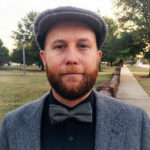Telling people to be themselves is wonderful advice – unless they actually try to take it.
Try it sometime. Try to be the real you – the authentic self that truly defines you. Where do you look for this version of yourself? How do you know when you’ve found it? And how can you tell when you are being “true to yourself”?
Before interviews or first dates or the first day of school, we love to tell people to just “be yourself.” But what if the whole modern idea of being yourself is based on a myth – a lovely, popular, inspiring myth, but a myth nonetheless? Even worse, what if this myth doesn’t make us better people, but rather we become more self-absorbed and less confident in the process?
Getting lost trying to find yourself
Here’s the myth: you have a single, specific, unique, special identity called your “Self” buried inside you under all your insecurities, your conformity to society, and your efforts to please others. Maybe this Self includes your body and your beliefs, but maybe your body and your beliefs are just two more things getting in the way of the “real you.”
But here’s the problem: there is no “real you” deep inside, waiting to be remembered. Of course you are a person with unique traits and experiences, but you are much more complicated (and beautiful!) than this understanding of a “real self” accounts for.
For starters, you are constantly changing. Physically, mentally, spiritually, you are never the same; second by second you are becoming someone different. You learn new ideas, experience new moments, develop new skills and cultivate new tastes. Call it “maturing” or being alive, but even the most unmotivated person will change over time.
And, yes, even your memories change. Every time you access a memory, it changes just a little bit. All this means that there is no pure, original, authentic you for you to be faithful to. How can you “be yourself” when your Self keeps moving?
Here are some of the “Selves” O. Alan Noble has had over the course of his life: 4-H swine showman, greaser with a white t-shirt and cuffed blue jeans ala James Dean, a long-haired grunge rock guitarist and lead singer, a future Naval cadet, a private detective, a skateboarder, a rapper, a college professor, a gamer, a writer, a scholar, a home schooler, a bald man. This is the highly condensed list.
Now, some of these sound like things I was into at one time or another, and that’s true, but when I was into those things I experienced them as my true self. When I played in an indie band, music was my true me. When I was in the Sea Cadets (ROTC for the Navy), being in the military felt like the real me, until it didn’t, and then I moved on to something else.
But surely writing is a part of who I am, right? After all, my entire career is about studying great writers, teaching new writers, and doing my own writing. Even my hobby is writing and editing! My dirty secret is that I didn’t really learn to read until I was much older than my peers. And my writing was so bad when I finished high school I had to start out in a remedial writing course at a community college. If I liked the rapper Drake, this is where I’d make a reference to “starting from the bottom,” but I don’t, so I’ll just point out that some of the passions and skills I care most about at 34-years-old man, I hated and was terrible at as a 17-year-old senior.
Will the real “you” please stand up?
Here’s the truth: I have never not been myself in my life. The writer is me, and the teenage guitarist is me, and the avid gamer is me. I know that sounds crazy, but hear me out.
When I would act and dress professionally for a job interview, I was still myself. I was just Alan Noble at a job interview. When I put on a sports coat with elbow patches and taught a college literature course, I was always me. When I tried to impress my wife before we got engaged, I was still me. In each case, I was adapting to the situation, which is what everyone always does.
There are some parts of my identity that have remained fairly stable throughout my life, but none of them are substantial or morally good enough to adopt as the “real me.” I’ve struggled against lust for decades, but if that’s my true self, I want nothing to do with it. I tend to be prideful, but that too needs to be put to death. I have a few positive traits – I like to help people with personal problems, but even that doesn’t define me.
If you approach your identity believing that there is an ideal you hidden inside, then you will almost certainly find something if you try hard enough. The problem is, the version of yourself that you find will actually be largely or entirely a product of who you want to be.
Our lives can easily center on this idea of creating our own “true Selves.” Have you ever considered how much of our culture is obsessed with crafting and promoting your identity? Try this: think of one product that isn’t marketed as having some effect on your image or identity. This laundry detergent will make your family appear clean and middle class. This album will help you identify with Country and Western culture. This low-fat yogurt will make you more healthy and attractive. And it goes beyond products. Attending this church will make you a hipper Christian or a pillar of the community.
Please don’t misunderstand me. I’m not telling you to stop using laundry detergent or stop caring about how others perceive you. My point is that if you are anxious to find the real you, you are liable to instead build your own identity, and that identity may be driven not by honoring God, but feeling right.
When we look inside, we can’t find a definite Self to be faithful to, so instead we craft one, and we spend an inordinate amount of time ensuring that everyone around us sees who we are and knows and respects or even admires the real, true me. And if we manage to get enough affirmation, maybe we feel like our existence matters. But that feeling only lasts until the next doubt comes, as it will.
Look outside, it’s pretty nice, really
What if we tried an entirely different approach to measuring ourselves?
To start, stop trying to be your Self. Just stop. Forget it. Because even if there is some ineffable, pure source of your identity hidden deep in your subconscious, the only thing you will accomplish by trying to find and be faithful to it is you will become completely Self absorbed.
So get rid of it. Stop trying completely. And instead, look outside. It’s a pretty nice place, really. But it’s filled with hurting people. And lost people. People who could really use a hug and a hand on the shoulder and love. They could use your honesty and your charity and your grace. They could use your attention. They need to be reminded that their worth is tied to the very image of God.
And those in the church could be reminded that their identity is hidden in Christ, in His finished work on the cross, not in whatever self they cobble together out of commercials and daydreams and societal expectations. And that identity, well, that identity doesn’t change, even though it changes us, molds our hearts, transforms our minds and renews our spirits. It’s pretty hard to capture this identity in an Instagram photo, but it doesn’t need that kind of validation. It’s true because He is true.
So, the best advice you can give someone before a job interview, or a first date, or the first day of school, is to thank Christ for His love, and to let that love come through.
Copyright 2016 Alan Noble. All rights reserved.










